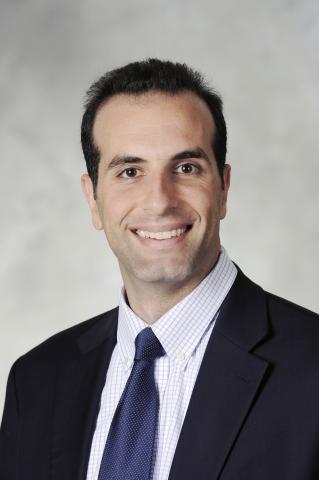ECE Assistant Professor Morris B. Cohen has been selected for an Office of Naval Research Young Investigator Award for his project entitled “Very-short Antennas via Ionized Plasmas for Efficient Radiation.”
Morris B. Cohen has been selected for an Office of Naval Research Young Investigator Award for his project entitled “Very-short Antennas via Ionized Plasmas for Efficient Radiation.”
An assistant professor in the Georgia Tech School of Electrical and Computer Engineering, Cohen leads the Low Frequency Radio Group and has been a member of the faculty since October 2013.
Antennas are used for all kinds of communications, including cell phones, AM/FM radio, satellite broadcast and GPS, television, RFID, and much more. While it’s often useful to have small and portable antennas, certain frequencies of radio broadcasts require antennas that are extremely large. For instance, think of the size of AM radio towers and even cell phone towers, which are hundreds of feet high.
At lower radio frequencies, this becomes an extremely difficult problem, as the size of the radio wave being broadcast is very big. But Cohen and his team would like to be able to generate low frequency radio waves better, because unlike cell phone signals, they propagate around the world.
Cohen’s proposed program aims to overcome this problem by building an antenna out of a plasma. A common example of a plasma is what is inside your fluorescent light bulb. It results when you put a high voltage across a gas, which rips apart the molecules. When that happens, a plasma can conduct electricity, much the way metal does (most antennas are built out of metal). But, unlike metal, the plasma can be turned off quickly, simply by shutting off the voltage.
Using the ability to turn a plasma on and off very quickly, and doing it in just the right fashion, Cohen and his team can control the properties of the antenna quickly enough to boost the efficiency of a low frequency antenna, even when it is rather small.
